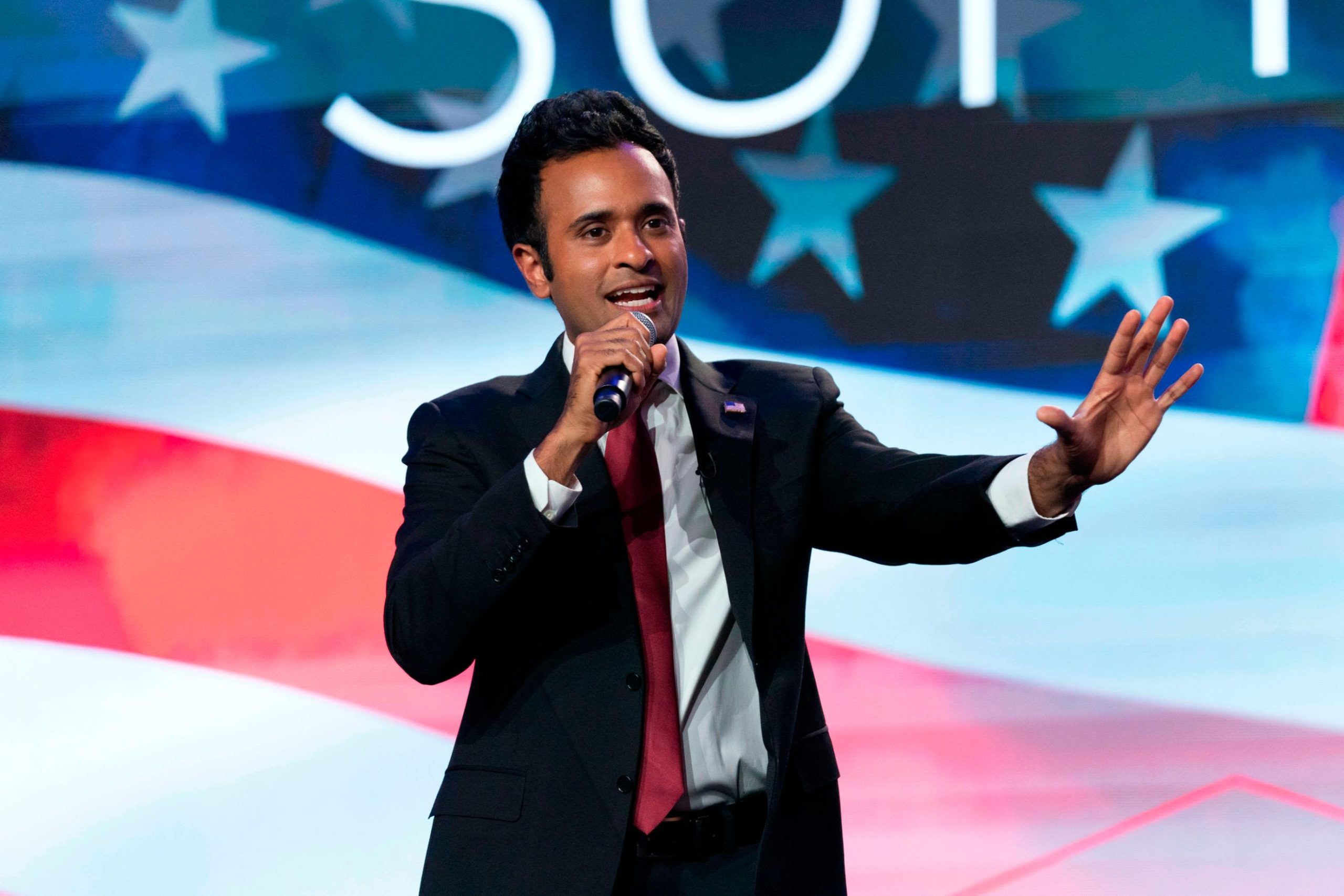Vivek Ramaswamy’s bid for the presidency lacked credibility from the outset. The biotech multimillionaire, who withdrew from the Republican primary after a distant fourth-place finish in the Iowa caucuses, appeared to run a strategic campaign primarily focused on enhancing his personal brand.
His actions throughout the race seemed tailored to attract conservative media figures and secure a potential position in the event of Donald Trump’s return to the White House. Ramaswamy consistently flattered the former president, echoed his populist rhetoric, and emulated his combative style during debates.
Despite his claims of not being a “plan B person,” Ramaswamy declined to clarify whether he would serve in a Trump administration. His candidacy often resembled that of an unofficial surrogate for his chief rival, with Trump even expressing openness to the idea of considering Ramaswamy as his vice presidential choice in an August interview.

However, Ramaswamy’s departure from the race may have strained relations with Trump, as he pledged to save the legally embattled ex-president with a presidential pardon. Although Trump initially acknowledged Ramaswamy’s early support, he later accused him of resorting to deceitful campaign tactics. By exiting the race and promptly endorsing Trump, Ramaswamy might be attempting to mend ties.
In addition to cultivating Trump’s favor, Ramaswamy spent the past year engaging with various conservative media personalities, including Tucker Carlson and podcasters Tim Pool, Candace Owens, and Benny Johnson.
To appeal to these figures, he endorsed several conspiracy theories and extreme policies prevalent in online right-wing circles, such as labeling the Capitol riot as an “inside job,” supporting the “Great Replacement” narrative, advocating for the deportation of American-born children of undocumented immigrants, and alleging that the 2020 election was stolen from Trump.
Ramaswamy also leveraged his age, being the youngest Republican candidate at 38, using Instagram livestreams and TikToks with internet celebrity Jake Paul to emphasize this aspect of his campaign. Despite these efforts, Ramaswamy finished with fewer delegates than bronze medalist Nikki Haley and well behind Trump, who secured over 50% of the state’s delegates in Iowa.
The reasons for Ramaswamy’s defeat remain unclear—perhaps the harsh weather played a role, or perhaps Iowa’s “America First” voters preferred supporting the original, Trump, over his imitator. Regardless, with his campaign suspended, Ramaswamy appears positioned where he may have always aimed to be at this stage: removed and unencumbered, free to express unwavering support for Trump without the need to differentiate himself or feign opposition. In a Monday night post, he declared, “[I] will do everything I can to make sure he is the next U.S. President.”


